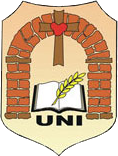Línea de investigación:
Autores:
Eric Daniel Urbina
E-mail: daniurbina2009@hotmail.es
Isidro Romero Paredes
E-mail: ingerpar@hotmail.com
Tutor: Ing. Juan Leopoldo Balsevich Prieto
Resumen
El presente proyecto consiste en la presentación de una propuesta de mejoramiento de la calidad de vida de las comunidades indígenas, con la utilización en forma eficiente de las energías existentes en sus entornos, a través de la utilización de los paneles solares, de los secaderos solares y de los hornos eficientes. Estas innovaciones permitirán, por un lado, dar confort a los miembros de la comunidad indígena, utilizar menos biomasa para procesar sus alimentos disminuyendo la tala de bosques y lo más importante con la utilización de los secaderos solares se puede industrializar las plantas medicinales con los que se puede comercializar los mismos y así generar ingresos a las comunidades con los que dejarían de deambular abandonando sus habitad en busca del sustento de sus familias. El trabajo de tesis fue desarrollado con un enfoque mixto no experimental de Diseño Exploratorio Secuencial (DEXPLOS), con un objetivo general de tercer nivel y con un alcance de investigación proyectivo. El mismo presenta dos escenarios por un lado la situación actual de los indígenas que ante las necesidades de subsistencia y desconociendo las grandes potencialidades que ellos tienen por los conocimientos de las propiedades de plantas medicinales, deambulan por las urbes en busca del sustento diario. En segundo momento se analiza el cambio de las condiciones de vida que pueden experimentar con la utilización de esta tecnología.
Palabras Clave: Calidad de Vida, Eficiencia Energética, Paneles Solares, Secaderos Solares, Hornos Eficientes, Biomasa, Enfoque Mixto, Plantas Medicinales, Tecnología.
Abstract
The present project consists of the presentation of a proposal to improve the quality of life of indigenous communities, with the efficient use of existing energies in their environments, through the use of solar panels, solar dryers and efficient kilns. These innovations will allow, on the one hand, giving comfort to the members of the indigenous community, using less biomass to cook their food, reducing forest clearance, and most importantly, with the use of solar dryers, the medicinal plants can be industrialized. They can be commercialized and thus generate income to the communities with which they would stop wandering, abandoning their habitat in search of the sustenance of their families. The thesis work was developed with a mixed non-experimental approach of Sequential Exploratory Design (DEXPLOS), with a general objective of third level and with a scope of projective research. The same presents two scenarios on the one hand the current situation of the indigenous people who face the needs of subsistence and unaware of the great potential they have for the knowledge of the properties of medicinal plants roam the cities in search of daily sustenance. Second, the change in living conditions that can be experienced with the use of this technology is analyzed.
Key words: Quality of Life, Energy Efficiency, Solar Panels, Solar Dryers, Efficient Furnaces, Biomass, Mixed Approa
